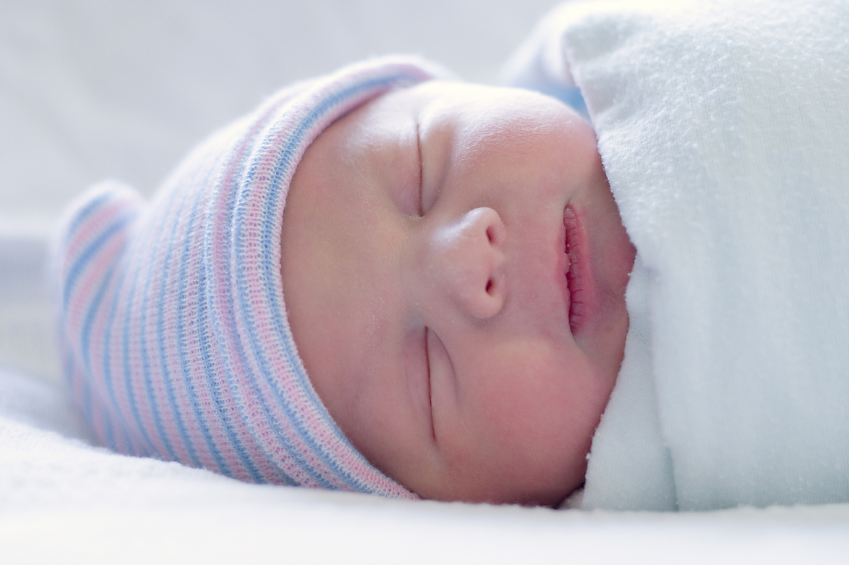In an essay called On ne peut imposer ça à personne1, Laurence Henry, anesthetist nurse, raised medical and ethical questions relative to neonatal resuscitation. Indeed, the technique allowed reducing the child mortality but sometimes at the risk of causing injuries leading to disability. In these cases, the question of the restrictions, even the interruption of treatments, arises and leads to a lot of ethical questions. Interview.
What are the reasons which motivated your book?
First of all, I was chocked as a caregiver by the figures which reveal that 50% of new-born babies who died after a neonatal resuscitation are in fact euthanized.
Then I was chocked as a mother by the partial attitude of physicians towards the parents regarding the decisions to be made. Moreover, the report 65 of the CCNE2 suggested that euthanasia of very premature infants suffering from high brain damages was the lesser evil.
Finally, the European study EURONIC3 published in 2000 revealed that performing euthanasia in neonatal resuscitation departments was a French specificity, with 75% of French physicians declaring to have “decided to give drugs to end the patient’s life” against 43% in the Netherlands whereas euthanasia is authorized.
What do you denounce in the practice of neonatal resuscitation?
The technique is precious because it allows saving lives but it must not be performed in a performance logic. The child should be first. Criteria of proportionality, such as the age, must be studied before resuscitating a premature infant, and to do so, the advice of senior physicians is useful for the young ones, which tend to resuscitate beyond reasonable limit. Also there is the danger of the “performance” the will to control everything including the precise moment of the death if the excessive resuscitation causes too many damages.
What do we arrive to such situations of therapeutic obstinacy which results in fine in euthanasia?
The obstinacy on the new-born baby is particularly explained by refusing the death. Also it is explained by the fact that the death of a child is unfair. Regarding euthanasia, it is the consequence of the refusal of a life marginalized by the disability. Today the child is selected, programmed, she/he is not imposed.
Then, we have to precise that it is the prematurity which leads new-born babies to resuscitation. The prematurity which increases in particular due to the fact of the medically assisted procreation.
You explain that the Léonetti law has brought great benefits to health professionals particularly thanks to the possibility to the interruption of the treatments, to the collegiate decision, to the obligation to treat the pain…
Can you enlighten us on the polemic it created on stopping food and hydration?
The Léonetti law allows stopping any treatment on physician’s proposal. But is food a treatment or a care? The treatment is what allows the reversal of things, and the care, what allows the continuity of life. Thus, hydration is always a care and stopping it corresponds to an act of euthanasia.
Nonetheless, artificial feeding requires further thought. The new-born infant, according to its age, may not be able to suckle because this requires too much energy; thus it is fed artificially, first through intravenous administration, and then through feeding tubes and finally concomitantly orally and through feeding tube.
This “artificially administered food”4 can be considered as a treatment if this is the single technique through which the child can live and gain strength… Thus it can be legitimately stopped, if it becomes excessive, provided the child is still gradually fed orally. Here it deals with entering in palliative care. This is what is performed at the University Hospital of Lille, for instance, by gradually stopping food through feeding tube and by continuing it orally, what gives the infant a chance to live. And children survive this way.
Nonetheless the full stop of oral feeding is not legitimate because the intention of the caregivers is not anymore an approach of palliative care, but a euthanasia approach.
Thus the intention of the caregiver is essential. Moreover she/he has to wonder about the quantity of administered sedative, because too much sedative does no longer allow eating naturally.
In your opinion, what can we do to avoid these situations?
First of all, there is the necessity to rethink the age of the resuscitation5.
Then, the acceptance of the disability in our society is difficult. Today, we resort to eugenic practices by performing “post-natal abortion”.
Besides politicians’ promises, there is no progress for welcoming disabled people and the parents are disappointed and feel guilty.
Finally, we should develop palliative care for new-born babies, in other words, coming out of the “treatment” approach to favor the “care” approach. This way we would treat the symptom and not the cause.
The palliative care focuses on the psychological well-being and the consideration of the relatives.
It is conception of the man, a whole philosophy.
1. On ne peut imposer ça à personne, handicap du nourrisson et euthanasie (we cannot impose this to anybody, disability of the infant and euthanasia), by Laurence Henry, collection carte blanche, édition Salvator ;
2. Opinion N°65 of 14th September 2013 « réflexions éthiques autour de la réanimation néonatale » (ethical thinking around neonatal resuscitation). ;
3. Survey made to 122 neonatal intensive care teams in 8 countries to describe how the decisions to continue or stop the resuscitation are made. ;
4. According to professor Jassaud. ;
5. The WHO recommends not resuscitating a new-born infant under 25 weeks of amenorrhea and 500 grams.

